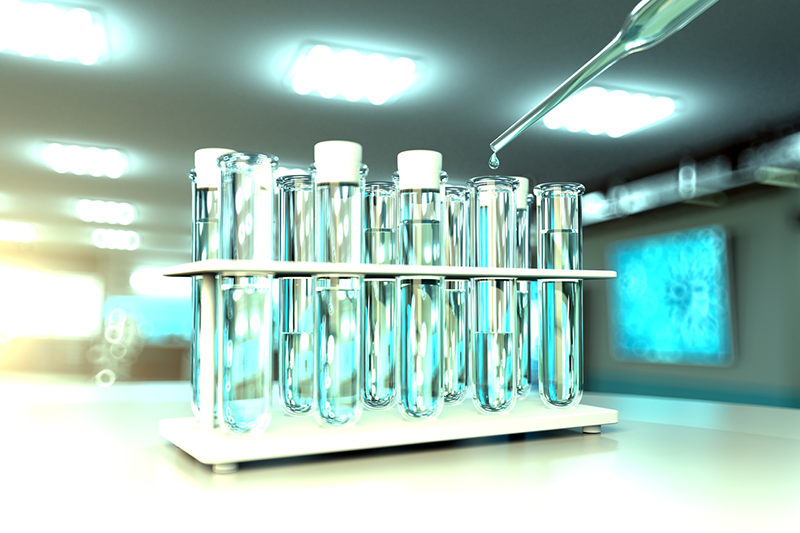Chemical pollution of the drinking water at Camp Lejeune, North Carolina has been the subject of many studies and the target of many lawsuits from U.S. veterans, their family members, contractors, and others who were present at the base between 1953 and 1987.
How the Water Got Polluted
Volatile organic compounds (VOCs) were found in the drinking water provided by three of the eight water treatment plants at Camp Lejeune. The water from the Tarawa Terrace water treatment plant was primarily contaminated by an off-base dry cleaning company and their waste disposal practices. Perchloroethylene (PCE) or tetrachloroethylene from the dry cleaner contaminated the wells feeding that water treatment plant.
The Hadnot Point water treatment plant was contaminated primarily by trichloroethylene (TCE) but PCE, benzene, TCE degradation products, and vinyl chloride were also found in the water. The contamination came from multiple sources, including leaking underground storage tanks, industrial area spills, and waste disposal sites.
Areas served by the Holcomb Boulevard water treatment plant were intermittently supplemented by contaminated water from the Hadnot Point plant during high demand spring and summer months from 1972-1985. Holcomb Boulevard wells were generally not contaminated.
Water for drinking, cooking, bathing, laundry, gardening and other daily activities was found to have hazardous levels of chemical contamination for a period of 34 years total, affected hundreds of thousands of people.
How the Contaminated Water Affected Those Who Were Exposed
The chemicals that contaminated the water at Camp Lejeune for so many years are known human carcinogens. It is likely that increased risk of various cancers, birth disorders, fetal and infant death, and other illnesses resulted.
The CDC has stated that sufficient evidence for causation of certain health effects exists for the chemicals detected in the drinking water at Camp Lejeune as follows:
- TCE has been shown to cause kidney cancer, non-Hodgkin’s lymphoma, and various cardiac defects
- PCE has been shown to cause bladder cancer
- Benzene has been shown to cause leukemias and non-Hodgkin’s lymphoma
- Vinyl chloride has been shown to cause liver cancer
The CDC has also concluded that exposure to the drinking water at Camp Lejeune cannot definitively be said to cause the following illnesses, but there is enough evidence to support a link between the exposure and the health effects. This means the evidence is “equipoise and above”.
- TCE is equipoise and above for leukemia, liver cancer, multiple myeloma, end-stage renal disease, Parkinson’s disease, and scleroderma.
- PCE is equipoise and above for non-Hodgkin’s lymphoma and end-stage renal disease
- Benzene is equipoise and above for multiple myeloma
TCE and PCE have been shown to have health effects in populations other than Camp Lejeune for the following:
- Chonal atresia (nasal passages blocked with bone or tissue)
- Eye defects
- Low birth weight
- Fetal death
- Major malformations
- Miscarriage
- Neural tube defects
- Oral cleft defects (including cleft lip)
- Small for gestational age
- Breast cancer
- Cervical cancer
- Esophageal cancer
- Lung cancer
- Hodgkins disease
- Ovarian cancer
- Prostate cancer
- Rectal cancer
- Impaired immune system function
- Neurological effects (delayed reaction times problems with short-term memory, visual perception, attention, and color vision)
- Neurobehavioral performance deficits (i.e., delayed recall and deficits in visual perception), decreased blink reflex, and mood effects (i.e., confusion, depression and tension)
- Severe, generalized hypersensitivity skin disorder (an autoimmune-related disease
Benzene has been shown to have health effects in populations other than Camp Lejeune for the following:
- Aplastic anemia
- Myelodysplastic syndromes
- Miscarriage
Vinyl chloride has been shown to have health effects in populations other than Camp Lejeune for the following:
- Brain cancer
- Lung cancer
- Soft tissue cancer
- Liver cirrhosis
Since March of 1987 Camp Lejeune’s drinking water has been considered safe. It is in compliance with comprehensive federal and state laws and regulations. The water is checked for VOCs more frequently than required by law and the base issues annual Consumer Confidence Reports to all residents of the base on the quality of their water.
